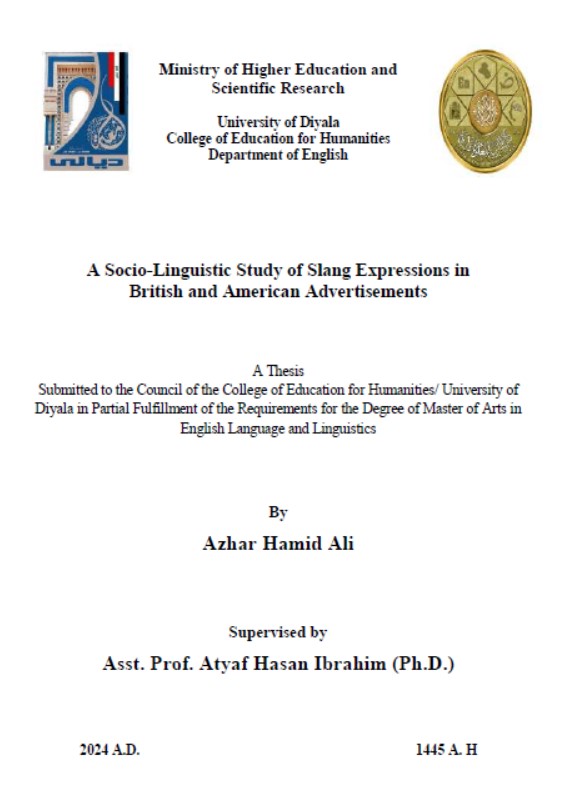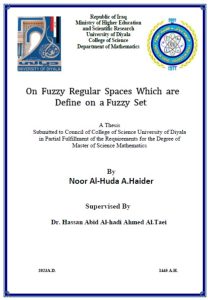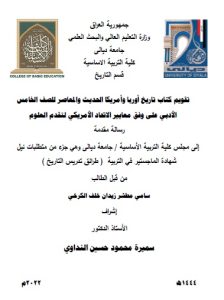Abstract
The expansion in trade marketing including slang expressions occupies a considerable space in the media environment. However, such overuse of slang language in marketing brings about misleading and misunderstanding of the intended aim of the ad and, in turn, the attention of people, as consumers, can be confused. This study is conducted to examine the employment of slang language in selected British and American advertisements (Henceforth, ads). It aims at exploring the contextual meanings of slang expressions, identifying the types and functions of slang expressions in British and American ads. It hypothesizes that there are certain contextual meanings behind using different slang expressions in British and American ads. In addition, slang expressions are more used in British adverts than in American ones. Besides, it is hypothesized that advertisers deliberately employ slang expressions in advert designing to have the intended effect on people as costumers and slang expressions are highly effected by social and cultural factors. To achieve its aims, answer its questions, and verify its hypotheses, the study follows two types of procedures: theoretical and practical. The theoretical part consists of presenting a theoretical framework of slang language including its root, development, universal features, functions, classifications and models. On the other hand, the practical part consists of selecting a sample of ten British ads and other ten of American ads. The adverts in both sets are written by different advertisers and companies, which are downloaded from different electronic newspapers, magazines, and websites. The data selected are analyzed in the light of an eclectic model based on Allan and Burridge (2006) and Burdova’s (2009) theories. The study comes out with several conclusions that slang expressions, in both American and British ads, have different contextual meanings based on the certain linguistic items and the cultural environment in which they are employed. Such expressions are commonly used in American and British ads to establish a sense of familiarity and connection with the target consumers. Functions served by slang expressions in the British ads are several such as ‘Cultural Connection; Informality and Relatability; Humor; Attention-Grabbing; Conveying Brand Identity and Simplification. Whereas, these expressions serve different functions in the American ads like ‘Engagement and Connection, Creating a Brand Identity; Attracting Attention; Conveying Informality and Fun and Cultural Relevance. Slang expressions used in both sets of ads are recognized to exert various impacts on the customers as a specific segment of society. Linguistically, slang expressions can contribute to the spread of propaganda of new strategies of marketing that can become more widely understood and used. They demonstrate the creativity and adaptability of language, as they often involve repurposing existing words or creating entirely new ones. Culturally, slang terms can reflect cultural trends and attitudes in that British ads tend to employ more slang expressions than Americans ones. The study ends up with a number of conclusions, recommendations, and suggestions for further research based on its findings.





